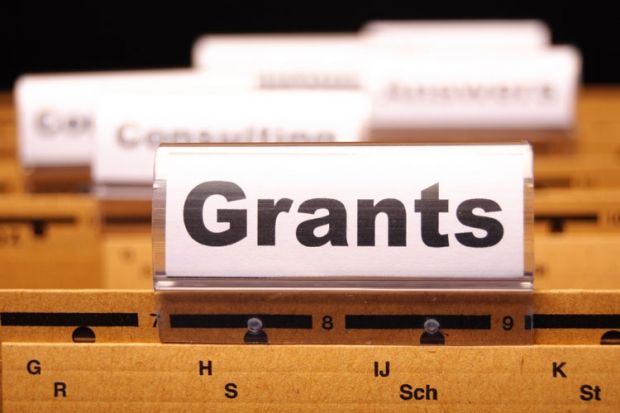Natural Environment Research Council
- Award winner: Sarah Dance
- Institution: University of Reading
- Value: £31,771
Improving high-impact weather forecasts via an international comparison of observation error correlations in data assimilation (OSCA)
- Award winner: David Oram
- Institution: University of East Anglia
- Value: £37,454
UK-Taiwan collaboration on transport and deposition of air pollution over the South China Sea
- Award winner: Thomas Bell
- Institution: Imperial College London
- Value: £489,025
Spillover of bacteria from agriculture into the surrounding soilscape
- Award winner: Claire Miller
- Institution: University of Glasgow
- Value: £180,954
Hydroscape: connectivity x stressor interactions in freshwater habitats
- Award winner: Leslie Firbank
- Institution: University of Leeds
- Value: £245,993
Using critical zone science to enhance soil fertility and sustain ecosystem services for peri-urban agriculture in China
Economic and Social Research Council
- Award winner: Susan Banducci
- Institution: University of Exeter
- Value: £486,296
Measuring information exposure in dynamic and dependent networks (ExpoNet)
- Award winner: Genevieve LeBaron
- Institution: University of Sheffield
- Value: £220,347
Understanding and governing the global business of forced labour
- Award winner: Nicholas Wareham
- Institution: University of Cambridge
- Value: £151,971
Non-communicable disease epidemiology and public health
Engineering and Physical Sciences Research Council
Research grants
- Award winner: Sofia Olhede
- Institution: University College London
- Value: £365,667
Modelling and inference for massive populations of heterogeneous point processes
- Award winner: Silviya Halacheva
- Institution: University of Bolton
- Value: £99,845
Multifunctional gel scaffolds for cell delivery and tissue repair
- Award winner: Craig Banks
- Institution: Manchester Metropolitan University
- Value: £509,085
Additive manufacturing next-generation Supergen energy storage devices
In detail
Award winner: Richard Turner
Institution: University of Cambridge
Value: £565,347
Machine learning for hearing aids: intelligent processing and fitting
There are two big problems that prevent hearing aids being as good as they could be for those who need them. The audio processing strategies employed by the devices are inflexible and do not adapt well to the listening environment, and the hearing tests used for fitting do not allow reliable diagnosis of the underlying nature of the hearing loss, which often results in poor fittings. In applying new machine learning methods to both problems, this project hopes to pave the way for intelligent hearing devices and testing methods that learn about an individual’s hearing loss and thus enable more bespoke fitting. The study will first construct algorithms to facilitate the development of “intelligent audio processing” devices that recognise a user’s acoustic environment. It will then propose a multistage approach to hearing tests in which the model of a patient’s hearing loss is refined after each phase and the results used to design and select stimuli for the next stage.
Register to continue
Why register?
- Registration is free and only takes a moment
- Once registered, you can read 3 articles a month
- Sign up for our newsletter
Subscribe
Or subscribe for unlimited access to:
- Unlimited access to news, views, insights & reviews
- Digital editions
- Digital access to THE’s university and college rankings analysis
Already registered or a current subscriber? Login
